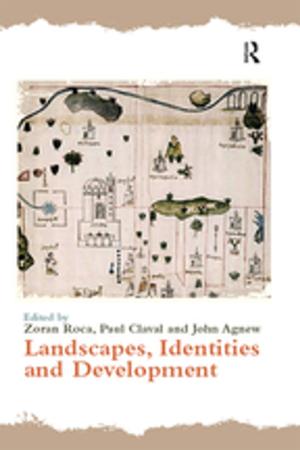| Author: | Hilary Moore | ISBN: | 9781351562744 |
| Publisher: | Taylor and Francis | Publication: | July 5, 2017 |
| Imprint: | Routledge | Language: | English |
| Author: | Hilary Moore |
| ISBN: | 9781351562744 |
| Publisher: | Taylor and Francis |
| Publication: | July 5, 2017 |
| Imprint: | Routledge |
| Language: | English |
Inside British Jazz explores specific historical moments in British jazz history and places special emphasis upon issues of race, nation and class. Topics covered include the reception of jazz in Britain in the 1910s and 1920s, the British New Orleans jazz revival of the 1950s, the free jazz innovations of the Joe Harriott Quintet in the early 1960s, and the formation of the all-black jazz band, the Jazz Warriors, in 1985. Using both historical and ethnographical approaches, Hilary Moore examines the ways in which jazz, an African-American music form, has been absorbed and translated within Britain's social, political and musical landscapes. Moore considers particularly the ways in which music has created a space of expression for British musicians, allowing them to re-imagine their place within Britain's social fabric, to participate in transcontinental communities, and to negotiate a position of belonging within jazz narratives of race, nation and class. The book also champions the importance of studying jazz beyond the borders of the United States and contributes to a growing body of literature that will enrich mainstream jazz scholarship.
Inside British Jazz explores specific historical moments in British jazz history and places special emphasis upon issues of race, nation and class. Topics covered include the reception of jazz in Britain in the 1910s and 1920s, the British New Orleans jazz revival of the 1950s, the free jazz innovations of the Joe Harriott Quintet in the early 1960s, and the formation of the all-black jazz band, the Jazz Warriors, in 1985. Using both historical and ethnographical approaches, Hilary Moore examines the ways in which jazz, an African-American music form, has been absorbed and translated within Britain's social, political and musical landscapes. Moore considers particularly the ways in which music has created a space of expression for British musicians, allowing them to re-imagine their place within Britain's social fabric, to participate in transcontinental communities, and to negotiate a position of belonging within jazz narratives of race, nation and class. The book also champions the importance of studying jazz beyond the borders of the United States and contributes to a growing body of literature that will enrich mainstream jazz scholarship.















